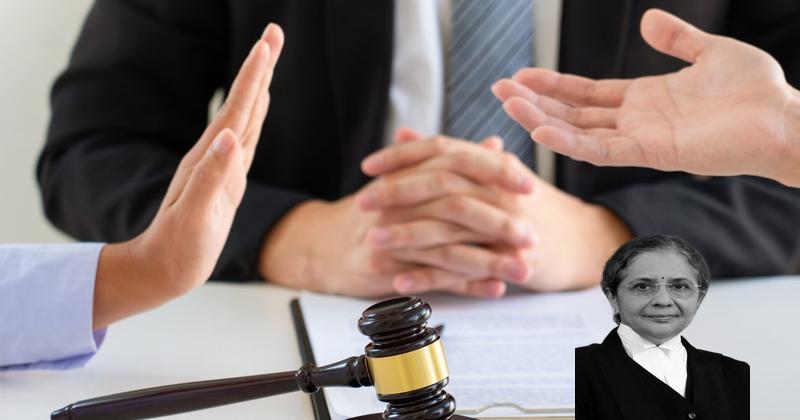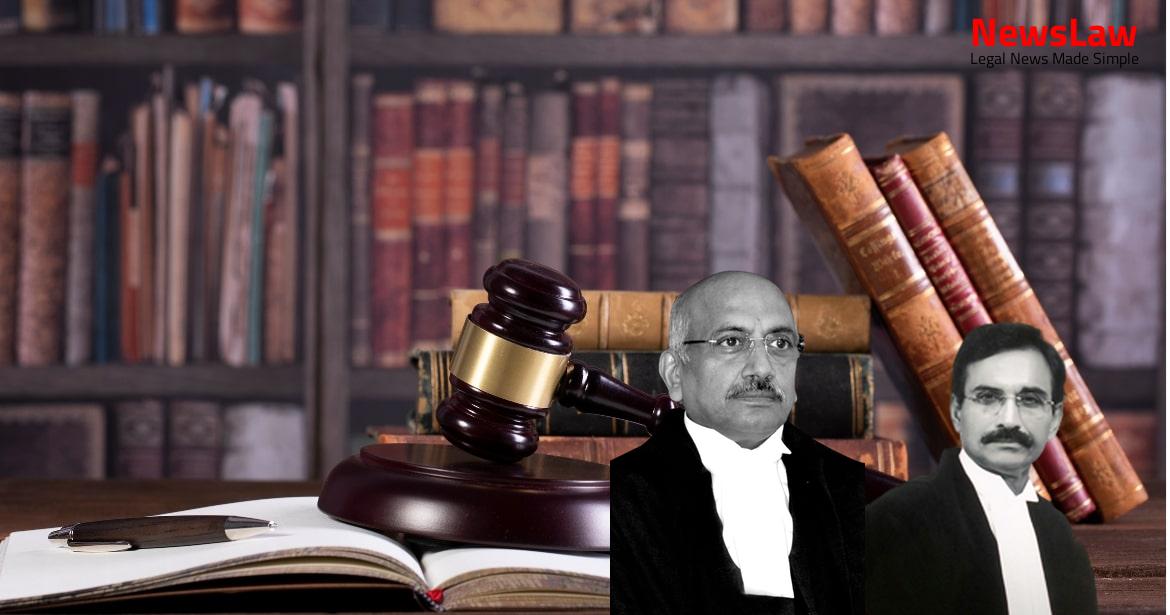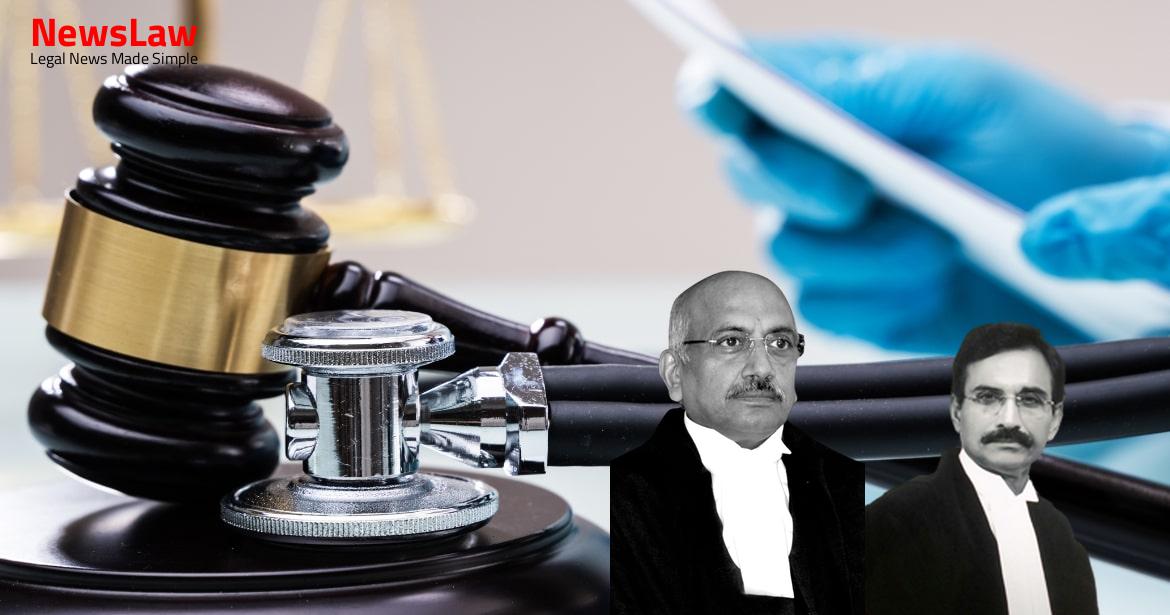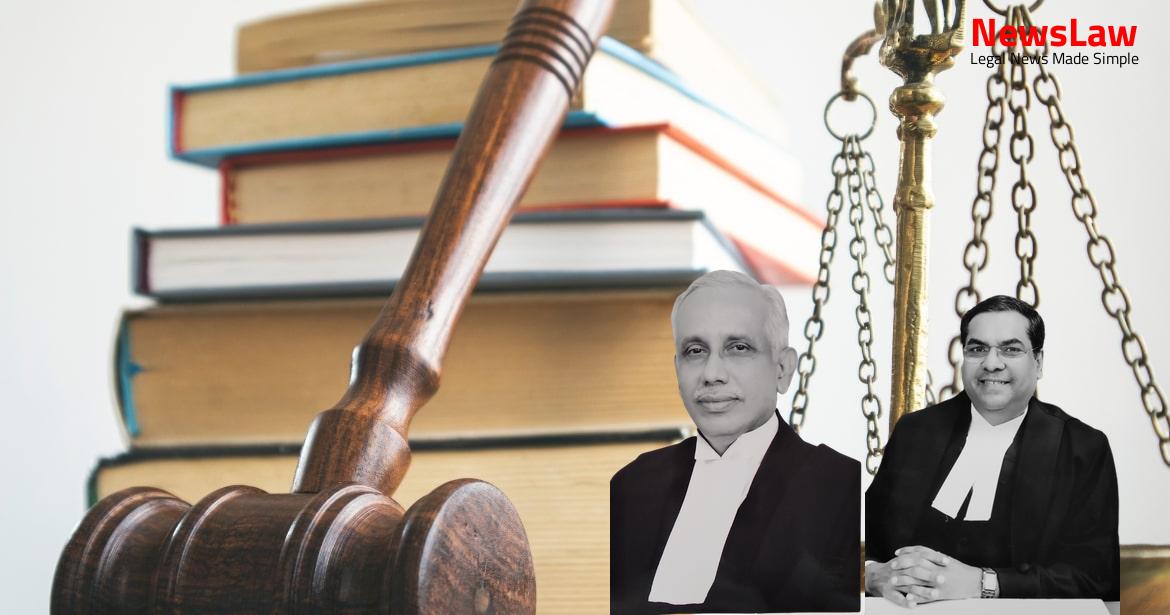The factual matrix giving rise to the present appeals are as under: – (2.1)
Also Read: https://newslaw.in/case-type/civil/evaluation-of-auction-process-and-locus-of-interested-bidders/
The Civil Suit No 420/1981 was filed by the plaintiff Jagtar Singh against the defendant Jhabbar Singh and others, with regard to the land admeasuring 12 bighas representing 240/819 share of the land admeasuring 40 bighas 19 biswas, as detailed in para 1 of the plaint.
421/1981 was also filed by the plaintiff Jagtar Singh pertaining to the land admeasuring 10 bighas 18 biswas representing 218/819 share of the land admeasuring 40 bighas and 19 biswas as detailed in para 1 of the plaint, originally owned by Jit Singh and 3 his wife Piar Kaur, who had sold the same for a consideration of Rs 42,500/- to the defendant Jhabbar Singh and others vide registered sale deed dated 24.04.1980. The Assistant Collector, Tehsil, Kurukshetra passed the following order on 25.05.1982 as under: – “…..T herefore, the objections placed by Jagtar Singh and others are rejected and the mode of partition which has already been prepared has been confirmed.
As per Naksha Be of partition, the partition is accepted the details of which is as follows: Name Number of Khasras allotted 1.Jhabbar Singh, Balak Ram, Sardar Ram, Afsar Ram, Sher Singh, Santu S/o Shibbu all the six portions are equal 790/2-792/2-792/1/2-800 2-16 3-14 0-4 4-0 801 783/2 -802/1 – 806/1 4-0 0-6 3-16 3-16 Total: 22 bigha 12 biswa 2.
Second Class Pihova ” 5 (2.6)
Also Read: https://newslaw.in/case-type/civil/judgment-on-execution-of-lease-deed-for-remaining-land/
It further emerges that thereafter the defendant Jhabbar Singh had filed an application before the Trial Court seeking an amendment in the written statement in the suits stating inter alia that during the pendency of the suits, the joint khata including the suit lands had been partitioned by the AC-I Grade, Pihowa vide order dated 31.07.1982. 1557/83 preferred by the plaintiff Jagtar Singh against the said judgments and decrees of the First Appellate Court, came to be allowed by the High Court vide the impugned common judgment and order dated 17.08.2007.
According to him, thereafter the Assistant Collector had passed the order on 31.07.1982 accepting the partition, and the appeal against the said order preferred by Jagtar Singh before the Collector was dismissed on 12.10.1982, and therefore the right of pre-emption even if had existed in favour of the plaintiff Jagtar Singh on the date of filing of the suits, did not survive on the date of passing of the decrees in the civil suits on 01.12.1982. Jaskaur Singh (1992 SCC Online P&H 676) and Munshi vs The Financial Commissioner, Haryana, Chandigarh (1993 SCC Online P&H 1086) to buttress his submissions. Bhalla submitted that in the said cases, the status of co-sharer had come to an end on the date set out in the instrument of partition, whereas in the instant case neither the instrument of partition was prepared, nor the date was determined by the Assistant Collector as per Section 121 of the Revenue Act, and therefore it could not be said that the proceedings of partition had stood concluded before the date of decrees passed in the suits. Right of pre-emption application of – The right of pre-emption shall mean the right of a person to acquire agricultural land or village immoveable property or urban immoveable property in preference to other persons, and it arises in respect of such land only in the case of sales and in respect of such property only in the case of -sales or of foreclosures of the right to redeem such property. Section 21 of the Pre-emption Act states that any person entitled to a right of pre-emption may, when the sale or foreclosure has been completed, bring a suit to enforce that right.
(2) An appeal may be preferred from an order under sub-section (1) within fifteen days from the date thereof, and, when such an appeal is preferred and the institution thereof has been certified to the revenue-officer by the [authority to whom the appeal has been preferred] the Revenue-officer shall stay proceeding pending the disposal of the appeal. Affirmation of partition privately affected: – (1)
In any case in which a partition has been made without the intervention of a Revenue-officer, and party thereto may apply to a Revenue-officer for an order affirming the partition. It is needless to say that in a suit for pre-emption, the vendor i.e., the owner of the suit land who had allegedly not given any notice of sale to the plaintiff as required to be given under Section 19 of the Pre- 13 emption Act and against whom the right to pre-empt the sale is claimed would be a proper party if not a necessary party, for a complete and final adjudication on the issues involved in the suit.
Though, Order I, Rule 9 states that no suit shall be defeated by reasons of the misjoinder or non-joinder of parties, care must be taken by the court to ensure that all the parties, be it the plaintiff or the defendant, whose presence is necessary for complete and final adjudication on the issues involved in the suit, are before the court. Further, having regard to the absolutely sketchy and loosely drafted plaint in the instant case, the Court is tempted to regurgitate the basic and cardinal rule of pleadings contained in Order VI, Rule2(1) of the Code, according to which every pleading (i.e., plaint or written statement) has to contain a statement in concise form of the material facts on which the party pleading relies for his claim or defence, as the case may be.
The right of pre-emption is not a right to the thing sold but a right to the offer of a thing about to be sold. The afore-stated position was reiterated by this Court in Barasat Eye Hospital vs Kaustabh Mondal, and again in the recent decision in case of Raghunath (Dead) by LRs. In our view, it is relevant to note this observation and we once again emphasise that the right is a “very weak right” and is, thus, capable of being defeated by all legitimate methods including the claim of superior or equal right.” At this juncture, it would be also apt to mention that apart from the fact that the right of pre-emption is very weak right and capable of being defeated by all legitimate methods, the pre-emptor must establish that he had the right to pre-empt on the date of sale, on the date of filing of the suit and on the date of the passing of the decree by the Court of the first instance. The Constitution Bench in case of Shyam Sunder and Others vs Ram Kumar and Another also while examining the issues whether in a suit for pre-emption, the pre-emptor should possess his right to pre-empt on the date of sale and on the date of the decree of the First Court, and whether the loss of that right after the date of decree either by his own act or by an act beyond his control or by any subsequent change in the legislation which is prospective in operation during the pendency of the appeal filed against the decree of the Court of First instance, would affect the right of the pre-emptor or not, has laid down certain principles, after making analysis of various decisions including the decision of the Full Bench rendered by the Punjab and Haryana High Court in Ramji Lal vs State of Punjab (supra). A pre-emptor who has a right to preempt a sale on the date of institution of the suit and on the date of passing of decree, the loss of such right subsequent to the decree of the first court would not affect his right or maintainability of the suit for pre- emption. Recapitulating the facts, it appears that the said plaintiff Jagtar Singh, the predecessor of the present respondent, had filed the suits on 06.04.1981 claiming his superior right to pre-empt the sale on the ground of being co-sharer in the joint Khewat alleging inter- 19 alia in the plaint that the original owner of the suit lands Jit Singh had executed the registered sale deeds on 07.04.1980 and 24.04.1980 in favour of the defendants Jhabbar Singh and others, predecessors of the present appellants, without giving any notice to the plaintiff. The Assistant Collector vide the order dated 25.05.1982 had rejected the objections of Jagtar Singh and had listed the case on 31.05.1982 for the objections as to the “ Naksha Be ”, which was already prepared and annexed to the file. The trial court after discussing various decisions of the Punjab and Haryana High Court held that the Khewat in dispute had remained no more joint as per the order dated 31.07.1982 passed by the Assistant Collector, and that the plaintiff had lost his status of a co- sharer on that date. However, the High Court in the Second appeals preferred by the original plaintiff Jagtar Singh reversed the concurrent findings recorded by the two courts below and allowed the second appeals, holding inter alia that on the date of the passing of the decree, no instrument of partition was drawn by the Revenue Officer, and 21 therefore it could not be said that the joint status of the parties had come to an end or that the plaintiff had lost his superior right of pre- emption.
Sub section 2 of Section 118 provides for an appeal to be preferred from decision of the Revenue Officer on the question of property to be divided, or the mode of making the partition.
It is pertinent to note that Section 117 of the Punjab Land Revenue Act confers discretion upon the Revenue Officer to decide the question as to the title in any property of which the partition is sought, either by himself or to refer the question to be determined by the competent court. — Where the Court passes a decree for the partition of property or for the separate possession of a share therein, then, — (1) if and in so far as the decree relates to an estate assessed to the payment of revenue to the Government, the decree shall declare the rights of the several parties interested in the property, but shall direct such partition or separation to be made by the Collector, or any gazetted subordinate of the Collector deputed by him in this behalf, in accordance with such declaration and with the provisions of section 54; (2) if and in so far as such decree relates to any other immovable property or to movable property, the Court may, if the partition or separation cannot be conveniently made without further inquiry, pass a preliminary decree declaring the rights of the several parties interested in the property and giving such further directions as may be required.” The decision on these two issues is exercise of a judicial function and results in first stage decision termed as “decree” under Order 20 Rule 18(1) and termed as “preliminary decree” und er Order 20 Rule 18(2) of the Code. Hence, once the decision on the property to be divided and on the mode of partition is taken by the Revenue Officer under Section 118, the joint status of the parties would stand severed on the date of such decision, subject to the decision in appeal if any preferred by the party. Meaning thereby, when the issue with regard to the properties to be divided and the mode of making partition stand decided and rights of the parties stand determined by the Revenue Officer, the latter part of Section 121 for preparing the instrument of partition and recording the date of partition would come into play.
Case Title: JHABBAR SINGH (D) BY LRS. ETC. Vs. JAGTAR SINGH (2023 INSC 373)
Case Number: C.A. No.-001497-001497 / 2008



